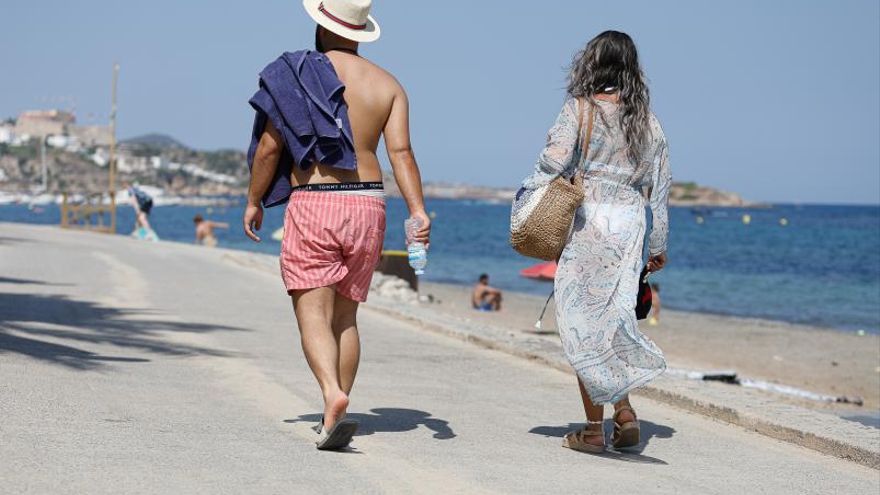One of the most serious health consequences of the extreme heat wave temperatures that the Pitiusas are experiencing throughout July is heat stroke. The symptoms to recognize are fever, nausea, vomiting, headache, lack of sweating and hot, flushed skin.
“In health, although it depends on the person, the body temperature should be between 35 and 37.5 degrees. When there is a sudden increase in body temperature, more than 40 degrees, the thermoregulatory system fails and that is when heat stroke can occur,” explains one of the nurses at the Vila health center and one of those in charge of heat precaution campaigns, Estela Terrer.
When there is an increase in temperature, sweating appears, but when the increase is extreme and unexpected, “the body does not have time to produce that sweat, the skin is dry and that is when heat stroke occurs,” adds the nurse.
The advice to prevent this dreaded consequence of a heat wave is: hydration, drinking at least 2.5 liters of water a day in summer; wearing lightweight, cool, light-colored clothing because they do not attract sunlight; eating light meals with a predominance of fruits, vegetables and natural juices; avoiding alcohol; covering your head with hats or caps; taking shelter in the shade, especially at the beach, with umbrellas, and avoiding exercise at midday or in the middle of the day, when temperatures are higher.
In addition, “at home you have to close the blinds to keep out the intense heat and it is very important not to leave anyone inside vehicles, or pets, because the temperature can rise five or six degrees inside the car and it is very dangerous,” reports Terrer.
Mistakes in a heat wave
One of the most common mistakes during the summer is to exercise when the sun is at its hottest; professionals advise doing sports from 8 or 9pm onwards. “Another mistake is not to hydrate, not drinking water because you are not thirsty,” says the expert.
The people most vulnerable to heat are children, the elderly, those suffering from chronic diseases and people who work in the sun because “they do not realize that they may be suffering from heat stroke. They do not detect the alarms of the regulatory system and that is the risk,” warns Estela Terrer.
For the full article, please visit Diario de Ibiza website here.


 Estela Terrer in her office at the Vila health center. | ASEF
Estela Terrer in her office at the Vila health center. | ASEF